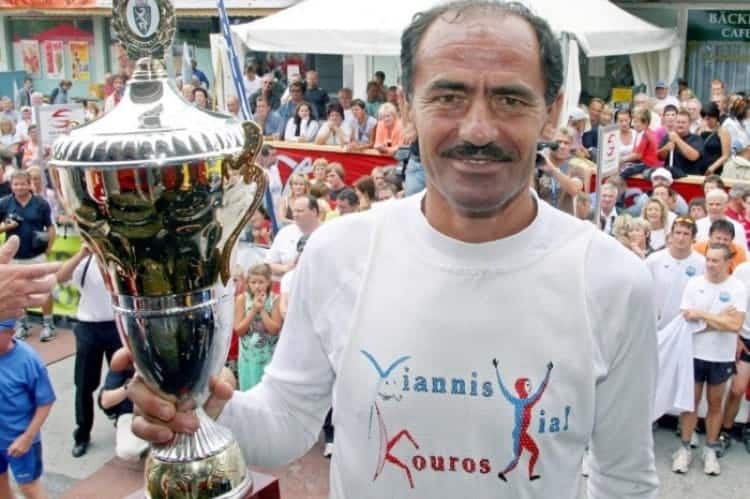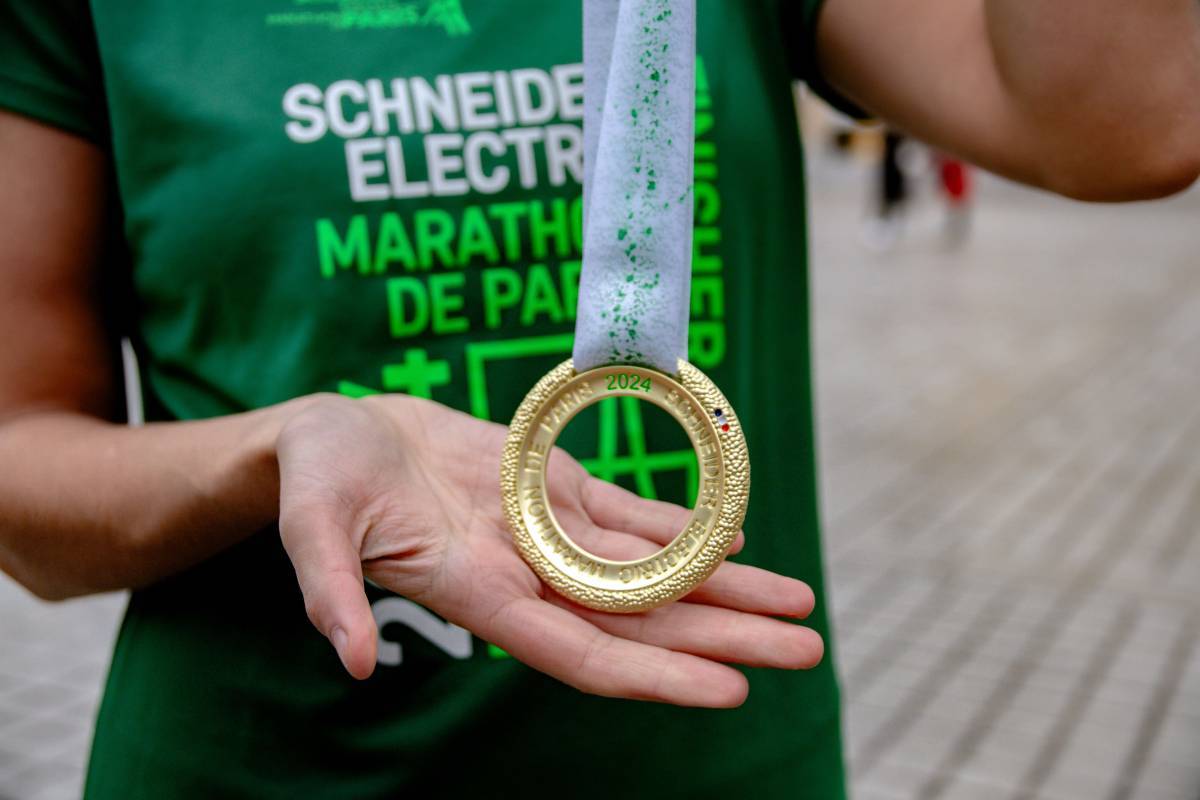Kouros: The First GOAT
We live in an era where records and extraordinary performances are shattered at breakneck speed, especially in long-distance running. Yet, as far back as the 1980s, one man nearly redefined the limits of ultra-distance running. Still revered by his peers, Greek runner Yiannis Kouros dominated extreme endurance races for three decades. His records reflect an exceptional career that continues to inspire a new generation of athletes, including Belgian ultrarunner Matthieu Bonne.
In the world of ultramarathons, one name always comes up when discussing the limits of human endurance: Yiannis Kouros. Known as “The Running God,” “The Modern Pheidippides,” or “The Unstoppable,” the native of Tripoli, Greece, earned countless nicknames thanks to his dominance on the roads. During his career, Kouros set more than 160 world records. Simply put, nearly every time he raced, a world record was at stake—and many of them still stand today. The scale of his achievements is staggering: even the legendary Kilian Jornet fell short in 2020 when he attempted to break Kouros’ 24-hour track record, held since 1997. That specific record has since been surpassed by Aleksandr Sorokin, who ran 319.61 km compared to Kouros’ 303.506 km.
| Legacy and Records: Numbers That Defy Time
Talking about Kouros means listing performances that seem almost unreal. At his peak, he held nearly every major ultramarathon record, from 100 km races to multi-day events. While his feats are too numerous to catalog fully, some of his still-standing records are worth highlighting:
- – 48 hours on track: 473.495 km in Surgères, France, in May 1996. To grasp the magnitude, he maintained an average pace of 10 km/h for two full days without proper rest. This record could soon be surpassed: in June 2025, Belgian runner Matthieu Bonne reportedly ran 485.099 km over 48 hours at the World Championships in Pabianice, Poland. The new record is awaiting official ratification.
– 1,000 km on track: 5 days, 16 hours, 17 minutes, achieved in Australia in 1984.
– 1,000 miles: 10 days, 10 hours, 30 minutes, set in New York in 1988.
These figures are truly monumental. Such performances are so extreme that they are rarely attempted today. They demand not only extraordinary endurance but also a mental resilience that borders on the superhuman. As Kouros famously said: “When the body collapses, it’s the mind that must take over. Pain is an illusion.” His four victories at the Spartathlon—a 246 km race from Athens to Sparta that resurrects the ancient legend of Pheidippides—earned him the nickname “The Modern Pheidippides” and remain etched in collective memory. Each win came with a commanding lead and record-breaking time, cementing Kouros as the benchmark of this legendary race. “Running against Kouros was like running for second place,” said his American rival Joe Fejes, who himself had a remarkable ultramarathon career.
| Kouros: A Poet and Workhorse
Born in Tripoli, Greece, in 1956, Yiannis Kouros was not predestined to become one of the greatest runners of his era. A poet and musician, he first expressed himself through art before turning to running. Traces of his musical work can still be found on his official website. Kouros ran his first marathon at age 21 in 1977, finishing in 2:43:15. His times steadily improved, and by 1981 he ran 2:25, winning the Athens Marathon that year. By 1983, six years after his marathon debut, he had completed 25 marathons. That same year, he entered the Spartathlon, the 246 km race inspired by the ancient legend of Pheidippides. Out of 45 starters, Kouros didn’t just win—he shattered expectations with a finishing time of 21:53:42. In 1984, he improved it to 20:25, a record that would remain unbeaten until 2023, when his fellow Greek Fotis Zisimopoulos finally broke it with 19:55:09 after 40 years. Following these early Spartathlon triumphs, Kouros continued to amass victories and records. But ultradistance running was still a niche pursuit at the time, and his feats remained largely unknown to the general public. Regardless, his reputation became almost mythical: opponents described him as “inhuman,” capable of covering incredible distances with robotic consistency. In Colac, Australia, he set several of his most iconic records, and in New York, he tackled the extreme distances, such as the 1,000 miles. As French organizer Jean-Gilles Boussiquet put it: “He ran as if he came from another planet.”
| His Successors: Sorokin, Bonne, and the New Generation
Forty years after his early triumphs, Kouros’ legacy remains indelible. Yet a new generation of ultrarunners has begun to challenge it. Notably, Aleksandr Sorokin, a Lithuanian former poker player turned runner, has been breaking records since 2017—100 km, 12-hour, and 24-hour races. In 2022, he finally surpassed one of Kouros’ “totems,” the 24-hour record, with 319.6 km. “Kouros showed what was possible. Without him, I would never have dreamed of these distances,” Sorokin said in tribute. In 2024, Belgian Matthieu Bonne followed in Kouros’ footsteps. Already known for personal challenges like swimming the English Channel and a triathlon tour around Belgium, Bonne broke the 6-day world record in Policoro, Italy, surpassing 1,045 km. “Breaking a Kouros record is like climbing Everest. You know you won’t be the first, but you want to prove it’s still possible,” he said. These modern champions acknowledge their debt to Kouros but approach running differently. Where Kouros relied on mental strength and instinct, they benefit from modern training methods, nutrition, and tracking technology. This contrast only amplifies Kouros’ aura: without GPS, sensors, or scientific guidance, he set benchmarks that current athletes still struggle to surpass. His extreme records, like the 1,000 km and 1,000 miles, remain untouched and likely will for years. As American ultrarunner Scott Jurek put it: “We all run in Kouros’ shadow.” The shadow of a giant.
Still in remarkable shape at 69, Yiannis Kouros continues to be an ambassador for his passion, supporting numerous ultramarathons. He also pursues his other loves—music and poetry—because for him, “Running is an art. I don’t run to win, I run to express myself. Every race is a different poem.”
Truly, a man apart.

Charles-Emmanuel PEAN
Journalist



